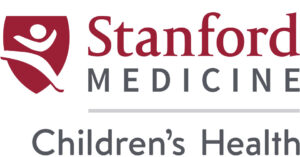New Grants Focus on How Post-Pandemic Policy Changes May Affect Care for Children with Special Health Care Needs
PALO ALTO – As the health care policy flexibilities that were instituted during the COVID-19 public health emergency begin to wind down, regulations are changing across the country and in states, potentially putting children’s health at risk.
Two new grants from the Lucile Packard Foundation for Children’s Health support efforts to understand and address the impact of these changes on children with special health care needs (CSHCN) and their families.
“Policies such as Medicaid’s continuous coverage requirement are a lifeline for CSHCN,” said Holly Henry, director of the Program for Children with Special Health Care Needs at the foundation. “We therefore consider it imperative to fund development and dissemination of information that will assist policymakers and families in advocating for maintenance of the critical programs and services that support the health and well-being of children, particularly those with complex conditions.”
A third new foundation grant promotes continued expansion of the assessment of family engagement in systems-level policy and decision making within CSHCN-serving health care entities.
The grants:
Ensuring Access to Health Care for Medicaid and CHIP Enrolled Children During and Beyond the Public Health Emergency
Grantee: Manatt Health Solutions
One of the key issues facing families and policymakers as the COVID-19 pandemic transitions to an endemic issue is the impending “unwinding” of continuous coverage under Medicaid and the end to state flexibilities granted for the duration of the public health emergency. About half of all children in the US have insurance coverage through Medicaid or the Children’s Health Insurance Program. Since the beginning of the pandemic, all states have been federally required to maintain continuous Medicaid coverage for children who were covered as of March 2020. It is likely that these coverage requirements will expire in 2022, leaving states to redetermine eligibility for millions of pending Medicaid cases. There is an extremely high risk that individuals will become uninsured even though they may continue to remain eligible for coverage. This is a life-and-death issue for children with special health care needs (CSHCN). Building on previous foundation-funded work to ensure access to Medicaid services for CSHCN, Manatt will prepare a set of rapid response policy briefs on key policy and operational recommendations to help minimize insurance coverage losses for CSHCN during the unwinding. A set of topic-specific one-pagers to support state-level advocacy efforts by family leaders also will be developed. This project will be conducted in partnership with Family Voices. This partnership will encompass regular meetings to share emerging issues that will impact CSHCN at the end of the public health emergency, targeted technical assistance to support state-level advocacy efforts by family organizations, and financial support for family engagement.
Parenting in the Context of COVID-19: Phase 2
Grantee: Population Reference Bureau, Inc. (PRB)
In 2020-2021, the foundation supported a questionnaire that was fielded three times over a nine-month period to assess the impact of COVID-19 on the experiences of families of children with special health care needs. As the COVID-19 pandemic enters its third year, with emerging consensus that the disease is transitioning to an endemic state, California families face new challenges and new needs. Building on the previous study, KidsData.org, a program of PRB, will field a fourth questionnaire to families in California to inform the need for timely, actionable evidence that policymakers, advocates, and program and agency staff can use to shape the programs, services, and workforce supporting California families as they adapt to significant, and now long-term, life changes.
The Family Engagement in Systems Assessment Tools: New Strategies to Facilitate Ease and Standardization of Use
Grantee: Family Voices
Through three previous rounds of foundation funding, Family Voices has developed and implemented the Family Engagement in Systems Assessment Tool (FESAT). This tool and its accompanying resources are designed to help child-serving health care entities assess, plan, and improve family engagement in systems-level initiatives. The most recent grant demonstrated wide usage of the FESAT by national programs, indicating a growing awareness of the value of family engagement. This new grant will support implementation of strategies to facilitate and standardize use of the tool, with a focus on partnership with federal Title V programs, which are a key source of support for promoting and improving the health of mothers and children, including those with special health care needs, in all fifty states and US territories.
###
The Lucile Packard Foundation for Children’s Health unlocks philanthropy to transform health for all children and families – in our community and our world. Support for this work was provided by the Foundation’s Program for Children with Special Health Care Needs. We invest in creating a more efficient system that ensures high-quality, coordinated, family-centered care to improve health outcomes for children and enhance quality of life for families. Learn more at lpfch.org/CSHCN.

